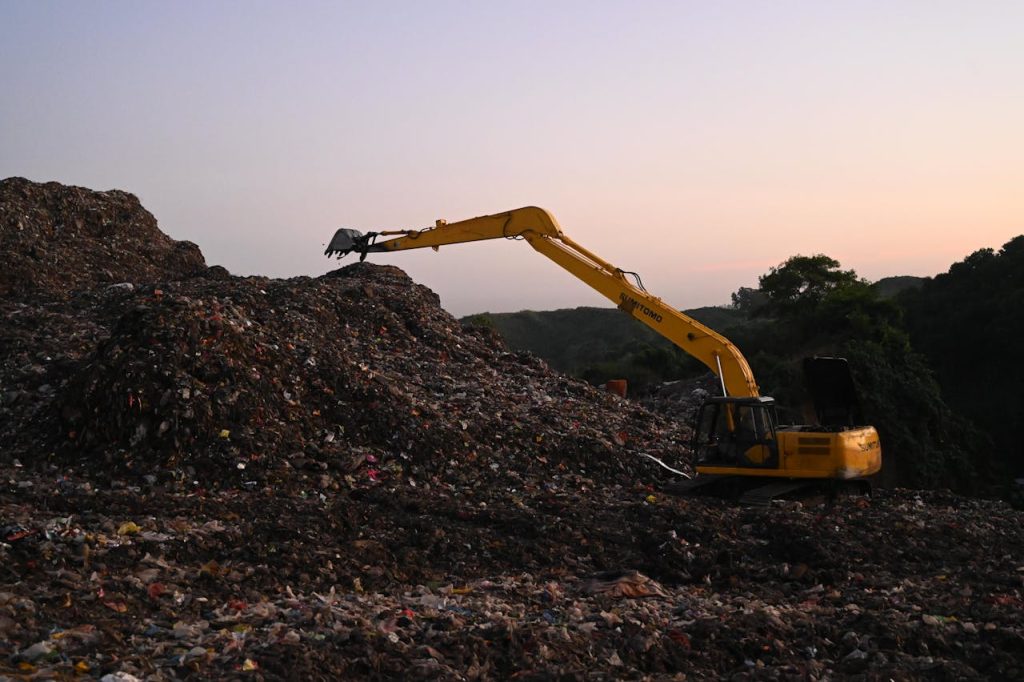
Waste Management Tips for SMEs
For small and medium-sized enterprises (SMEs), effective waste management is crucial. It helps reduce costs, comply with regulations, and enhances sustainability efforts. Managing waste efficiently doesn’t have to be complicated or expensive; it’s about making simple, smart changes. Here are some essential tips for SMEs looking to improve their waste management practices.
1. Start with a Waste Audit
The first step to managing waste is understanding what types of waste your business produces. A waste audit will help you identify how much waste you’re generating, what materials you’re discarding, and where improvements can be made. This can be as simple as reviewing your bins or as detailed as tracking waste over time. Understanding your waste patterns is the key to creating an effective waste reduction strategy.
2. Embrace the 3 Rs: Reduce, Reuse, Recycle
· Reduce:
The most efficient way to manage waste is by reducing it in the first place. Look for opportunities to cut down on materials, packaging, and energy use. Encourage staff to go paperless, minimise packaging, and only print when necessary.
· Reuse:
Before disposing of materials, ask if they can be reused. Consider reusing packaging materials, office supplies, or refurbishing equipment rather than buying new items.
· Recycle:
Set up a recycling programme in your workplace with clearly labelled bins for paper, plastic, glass, and other recyclables. Train your staff on what can and can’t be recycled, and make sure to partner with a reliable recycling service.
3. Go Paperless Where Possible
Paper waste can be a major issue for many SMEs. Consider switching to digital alternatives like cloud storage, online invoicing, and electronic communication to significantly reduce paper consumption. For necessary printing, use both sides of the paper and set your printers to default to double-sided printing.
4. Review Packaging Practices
Excessive packaging not only adds to waste but can also increase your costs. Review your packaging practices to see where you can reduce waste. Choose eco-friendly packaging options, such as biodegradable materials, or reusable packaging. Collaborating with suppliers who prioritise sustainable packaging solutions can also make a big difference.
5. Incorporate Waste Management into Your Business Culture
Waste management needs to be part of your business culture to be truly effective. Educate employees about the importance of reducing waste and provide guidance on best practices. Simple habits like turning off lights, avoiding single-use items, and proper recycling can become second nature when reinforced as part of your company’s values.
6. Comply with Local Waste Regulations
Every business has a responsibility to manage waste in accordance with local regulations. Stay up to date with the laws that apply to your business to avoid potential fines or penalties. This is particularly important for hazardous waste or materials that require special disposal. Working with a licensed waste contractor can ensure that you remain compliant with regulations.
7. Work with Sustainable Suppliers
The suppliers you work with can have a direct impact on your waste management efforts. Partner with vendors who are committed to sustainability and use minimal, eco-friendly packaging. You can also ask suppliers to take back excess packaging or materials for reuse. You could also use a waste management company in Scotland.
8. Monitor Energy Use
Managing waste isn’t just about materials – it’s also about energy consumption. Reducing energy waste by investing in energy-efficient lighting, machinery, and heating systems can have a significant impact on both your environmental footprint and your bottom line. Encourage staff to adopt energy-saving habits, such as turning off equipment when not in use.
9. Consider Circular Economy Solutions
The circular economy promotes keeping resources in use for as long as possible by reusing, repairing, refurbishing, and recycling. Look for ways your business can adopt circular economy principles, such as refurbishing old equipment, selling or donating unused materials, or offering customers incentives to return used products for recycling.
10. Track and Measure Your Progress
Waste management should be an ongoing process, not a one-off project. Track your waste reduction efforts and measure their effectiveness over time. Regularly review your waste management plan to identify new opportunities for improvement and to ensure you’re meeting your goals.
11. Use Technology to Your Advantage
Waste management tools and software can help SMEs track their waste, monitor recycling rates, and identify inefficiencies. These solutions often provide detailed reports that help you understand your waste streams and make data-driven decisions to reduce waste further.
Conclusion
For SMEs, efficient waste management is both a practical and responsible business practice. By auditing your waste, reducing materials, reusing where possible, and recycling effectively, your business can minimise its environmental impact while saving on costs. As sustainability becomes an increasingly important part of business operations, taking proactive steps towards better waste management will not only benefit your business but also position you as a responsible, forward-thinking company.
